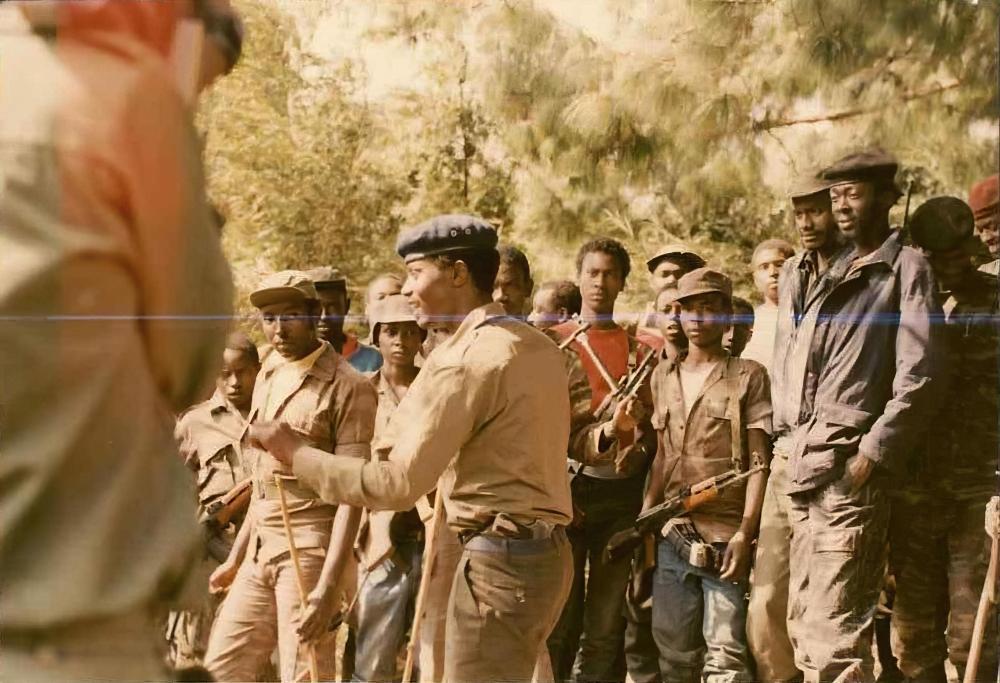Jean-Paul Munyandamutsa
Africa-Press – Rwanda. History shows that liberation is only possible when diverse social classes, the peasantry, working class, and intellectuals form a united front against oppression.
For this reason, capacity building among leaders and political cadres has always been central to the liberation agenda. It calls for a clear articulation of a noble cause and principled leadership capable of shielding the struggle from ideological backsliding.
From its inception, the Rwandese Patriotic Front (RPF) shaped its political and organisational ideology based on a scientific analysis of decolonisation movements and the struggle against neo-colonialism. One of the lessons drawn was that many such movements failed due to ideological weakness, largely rooted in ignorance of the historical realities they sought to transform.
Learning from those failures, the RPF charted an informed path. It established a sound ideological foundation that guided its mission and eliminated the weaknesses that had derailed similar efforts elsewhere.
A critical insight was the recognition that the greatest threat to a political movement often comes from within—especially when personal or narrow group interests prevail. In many liberation movements, this internal rot gave rise to elite cliques that replaced one oppressive regime with another—pursuing privilege over public service.
The power of “class suicide”
During the liberation war, the RPF drew inspiration from Amilcar Cabral’s doctrine. Cabral emphasised that political leaders must be prepared to “commit class suicide”—a metaphorical death of elite privilege—so they can be reborn as humble mobilizers, rooted in the people’s aspirations.
This process begins with unlearning colonial-era attitudes, particularly the entitlement and arrogance often associated with African elites. The RPF did not follow Marxism to the letter, but it shared with Cabral a commitment to mental decolonisation.
In Kinyarwanda, the concept of kwirenga captures the essence of this ideological sacrifice. It means setting aside personal interests for the collective good—especially when the two are in conflict. Kwirenga represents a dual awareness: the responsibility of being historically significant while embracing humility and collective purpose.
Those who internalise this mindset become genuine servants of the liberation cause. Those who fail to do so often become sources of disruption and decline. Kwirenga, therefore, is more than a concept—it is a value system built on shared responsibility, sustained discipline, and a united drive toward irreversible transformation.
To guard against the trap of becoming a detached ruling class, the RPF emphasized—then and now—the importance of staying connected to the people. This ideological clarity continues to guide the organization, largely due to the leadership of President Paul Kagame.
Political analyst Frederick Golooba-Mutebi aptly observed that Kagame believes in “a political model that values public service as the best way to realise individual interest, sees love for Rwanda as a means for self-worth, and places the pursuit of collective prosperity above self-aggrandizement.”
“If you don’t turn to politics…”
An old RPF adage warned: “If you don’t turn to politics, politics will turn badly on you.” This maxim helped awaken awareness among Rwandans—regardless of ethnicity—that they had a stake in the liberation struggle.
As more citizens joined the movement, the corrupt regime in power became increasingly isolated. The phrase “If it is to be, it is up to me” gained traction—not just as a motivational slogan but as a deeply ideological call to action.
This was rooted in the understanding that politics of division could not solve the deep socio-economic problems facing the majority. The RPF stepped into this void by proposing alternative, people-centered solutions—and defending them with both conviction and clarity.
The movement’s first achievement was to dismantle the ethnic divisions that had long plagued Rwandan society. Cadres were taught to analyse the country’s history through the lens of historical materialism—the belief that social change is driven by material conditions rather than abstract ideas.
Mobilisation as a Lifelong commitment
For the RPF, political mobilisation is never a one-off campaign. It must be continuous and inclusive. Effective mobilisation tackles every form of resistance—from ignorance and misinformation to local disputes and manipulation by vested interests.
Equally important is combating scepticism and complacency. Not all passive citizens are uninterested—many need guidance and education to see their role in change. Even those initially hostile to the cause can be won over if not paralyzed by fear.
Correcting misconceptions and demystifying false narratives is vital. But mobilisation must go further. It should encourage even sympathizers to move beyond agreement and take active roles in the struggle—just as public health is not solely the responsibility of doctors, or security of the police.
The RPF recognises that no section of Rwandan society can be safe if others are insecure. This understanding obliges those who grasp it to bring others along—through dialogue, education, and leadership by example.
This consistent, people-focused approach explains the RPF’s growing popularity since 2000. The party’s ideological victory was built on convincing the population that Rwanda’s problems could be addressed more effectively through dialogue, consensus, and collective responsibility.
Source: The New Times
For More News And Analysis About Rwanda Follow Africa-Press






